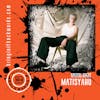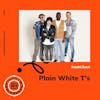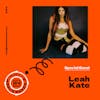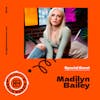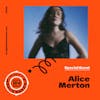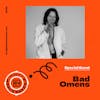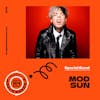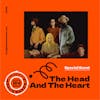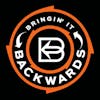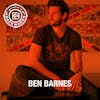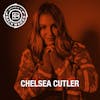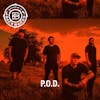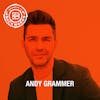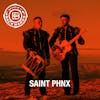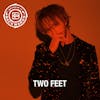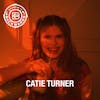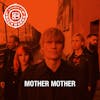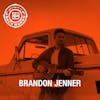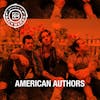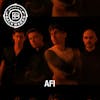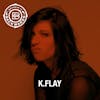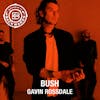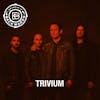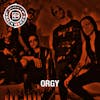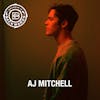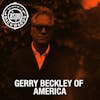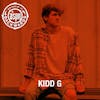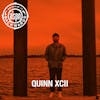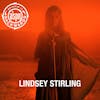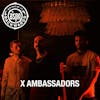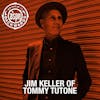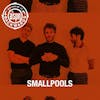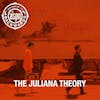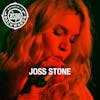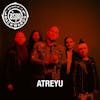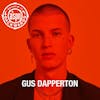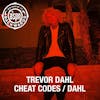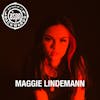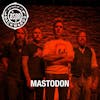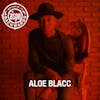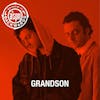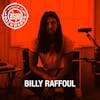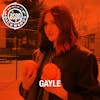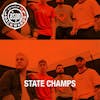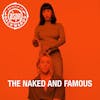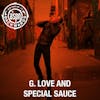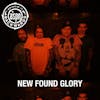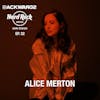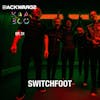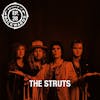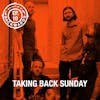Interview with Jukebox the Ghost
We had the pleasure of interviewing Jukebox The Ghost over Zoom video.
Jukebox the Ghost’s flamboyant and ambitious new album, “Cheers” is an arena-sized, ebullient toast to surviving and thriving in the face of hard times, conjuring up 70’s Queen...
We had the pleasure of interviewing Jukebox The Ghost over Zoom video.
Jukebox the Ghost’s flamboyant and ambitious new album, “Cheers” is an arena-sized, ebullient toast to surviving and thriving in the face of hard times, conjuring up 70’s Queen and McCartney-styled song suites, without sacrificing any modern punch. As the millennial generation’s torch carrier of the piano pop legacy, Jukebox the Ghost’s latest album represents a fresh, ambitious, and imaginative take on the piano rock genre.
Piano-pop trio Jukebox the Ghost formed in college in 2006 and has steadily their devoted fanbase over almost two decades, finding their home as an internationally touring band with a massive, grassroots following outside of traditional music industry pipelines. Composed of Ben Thornewill (piano/vocals), Tommy Siegel (guitar/bass/vocals) and Jesse Kristin (drums/vocals), they have played over 1,000 shows around the world over the course of their touring career.
“Cheers”, their sixth studio effort, is the result of a three-year songwriting and recording process, culled from over 50 songs that the band brought to the table. The recording process began in Brooklyn during the beginning of the pandemic and continued throughout, with the band self-producing and quarantining together for six months to make the finished product -- by far the longest stretch of time the band has spent in the studio working on a LP to date. The effort is palpable; motifs appear and re-appear in interstitial tracks that segue into standalone pop songs, implying a larger thematic architecture that borders on a concept record without being overwrought. By almost any measure, it’s their most ambitious and cohesive creative effort to date.
Longtime fans will hear little bits of past Jukebox the Ghost embedded in the record, distilled into something more confident and bold. The imaginative lyrics, song segues, and storytelling of Let Live and Let Ghosts (2008), the retro sensibility of Everything Under the Sun (2010), the concise modern pop smarts of their recent self-titled album (2014) and the broad pop earnestness of Off to the Races (2018) are all on full display. On their sixth studio album, Jukebox the Ghost is firing on all cylinders. Cheers, indeed.
We want to hear from you! Please email Tera@BringinitBackwards.com.
www.BringinitBackwards.com
#podcast #interview #bringinbackpod #JukeboxTheGhost #Cheers #NewMusic #zoom
Listen & Subscribe to BiB
https://www.bringinitbackwards.com/follow/
Follow our podcast on Instagram and Twitter!
https://www.facebook.com/groups/bringinbackpod
We'd love to see you join our BiB Facebook Group.
Hello! It is Adam. Welcome back to bringing it backwards. A podcast where both legendary and rising artists tell their own personal stories of how they achieve stardom. On this episode, we had a chance to hang out with Ben, from band jukebox, the ghost over zoom video, Ben was born and raised in Louisville, Kentucky, and he talks about how he got into music. Classically trained piano player started playing piano at six is a really cool story about his mom, making him sign a contract that he'll continue to play through high school. She still has said contract, but he did that all through high school and never played in a band, but was in recitals and writing his own music. 5 (2m 8s): When he went to college at George Washington university, that's when he met the rest of the guys in the band, they're playing under a different name for about a year. Then took four months off as Ben, Tommy and Jesse all studied abroad for four months, came back, started the band became jukebox. The ghost, and from there wrote their first record did a ton of touring. Graduated college, moved to Philadelphia and started to pursue music. Full-time Ben tells us about some big milestones for the band, like opening up for Ben folds, playing the late show with David Letterman, other massive tours that they had a chance to do. 5 (2m 48s): Getting signed to a major label, having a song, make it onto radio. He talks about where they were when the pandemic hit and all about this brand new record, which is called cheers. You can watch our interview with Ben on our Facebook page and YouTube channel at bringing it backwards. It would be awesome if you subscribe to our channel like us on Facebook and follow us on Instagram, Twitter, and Tik TOK at bringing back pod. And if you're listening to this on Spotify, apple music, Google podcasts, it'd be amazing if you follow us there as well and hook us up with a five-star review. 6 (3m 23s): We'd appreciate your support. If you follow and subscribe to our podcasts, wherever you listen to podcasts, 5 (3m 29s): We're bringing it backwards with jukebox the ghost. Hey man, what's up, man? 7 (3m 34s): How are ya? I'm 5 (3m 35s): Doing well. I'm doing well. How are you? 7 (3m 37s): Yeah, let me make sure everything is because you can hear me if we're talking and you're answering. That's a good sign 5 (3m 46s): Killer, man. Thank you. Yeah, it was weird. I was having an issue with my zoom earlier. Like I would hit admit, and then instead of going do-do and then the person popping up, like their name would disappear and then like a few seconds, like, it just happened to you for you. So I'm like, and then, then you popped up. It was really bizarre. 7 (4m 2s): That makes you feel better. I, I did the zoom and realized that my camera wasn't even plugged in. So there's, you know, there's a lot of user error happening at the moment. 5 (4m 10s): All good. I love the kid on and it worked. It was just bizarre because usually it'll go like D and then it'll show your, your thing. It didn't do anything. It was like, went away. I'm like, oh, what's going on? And then it was just like, your picture showed. 7 (4m 24s): Well, here I am. Here we are. We do. 5 (4m 26s): Awesome. Well, Ben, thank you so much for doing this. 7 (4m 29s): Thanks for having 5 (4m 30s): Me. My name is Adam, and this is about you and your journey and music. And I want to talk to you about the new record and you guys are doing a big tour coming up. So I'd love to chat about all that. 7 (4m 39s): All of it. I'm down to answer any of your hard hitting questions and some of the soft hitting ones. If you have those too, 5 (4m 46s): They're all pretty much soft hitting. I'm just going to lob them to you. Where were you born and raised? 7 (4m 53s): Born and raised in Louisville, Kentucky Louisville, Louisville. If you want to say, I get a lot of, a lot of hate for that, but for saying it that way, but yeah, born and raised in Louisville, Kentucky, and then yeah, I went to college in DC. Was that how I met the guys, but I'm a Kentucky boy. 5 (5m 9s): There you go. I just moved to Nashville about a little over a year ago. Well, 7 (5m 13s): Yeah. How do you like it? 5 (5m 15s): Absolutely love it. The best decision 7 (5m 17s): From LA from, 5 (5m 18s): From San Diego, pretty much. I lived there, my family and I lived there for, I mean, I lived there my whole life, Brady sickly five spend five years in San Francisco. But other than that, like California is all I know all my wife knows all my kids now. And you know, we moved out here about a year and a half or a year and a few months ago and we absolutely love it. 7 (5m 38s): That's awesome. I mean, I have a lot of friends that live in Nashville, obviously from Louisville. Right. It went down, but then just, you know, people that used to live in New York and LA or in one of these other cities where like Nashville seems like a cool place. Let's go there. Let's try it out. 5 (5m 51s): Yeah. I mean, just being from Kentucky, I mean, you're in what, an hour, maybe a little bit more, 7 (5m 56s): What was it like three hours. Think it's like three hours. 5 (5m 59s): I 7 (5m 59s): Told you it's all the way, 5 (6m 0s): Like a couple an hour or something. I can't remember. I remember just getting to Kentucky fairly quickly. 7 (6m 6s): You can get to the boonies pretty quickly, but then it takes a while to get to Louisville. 5 (6m 9s): Okay. What was it like growing up there? 7 (6m 12s): I, you know, it's just sort of a regular suburban growing up. It's it's funny. My, you know, grew up in the suburbs and played a lot of piano and my, I guess from a context standpoint, like I was all classical piano all the time. That was my growing up. So, you know, I had that, I had my like neighborhood friends and I did like the normal childhood thing, but I was never like part of the Louisville music community. Like I didn't start a band until I got to college. It was all very serious classical training. Like that's, that was my whole world. So, you know, I don't have like the, I think a lot of people grow up in a town and, and, you know, start get their first like high school band and play the local shows and do the thing. 7 (7m 0s): And I didn't have that experience, but I've played in the concert halls at the university of Louisville and I've done many, a recital 5 (7m 9s): Probably still played. I mean, prior to the ban hundreds of shows just in front of a door, it's just a different vibe. Yeah. 7 (7m 16s): Yeah. Mostly my parents and the parents of other people that are also taking piano lessons. Wow. It was 5 (7m 23s): Great. When did you start piano? 7 (7m 25s): When I was six started? Yeah. When I was, when I was six years old, I started doing classical piano. 5 (7m 30s): Okay. What was the draw to, or were your parents musical or 7 (7m 34s): So my, yeah, my dad plays a classical guitar because the guitar and he like writes and sings, but I was just always drawn to the piano is actually a really cool story with it. I wanted to take piano in my parents got me into like, you know, early music, education, Tinder music, you know, a bunch of kids in a room ringing bells and having a good time. I wanted to take piano. And my mom, you know, sort of had this like premonition, you know, so many kids take it when they're young and then they get sick of it or they have, you know, they, they become, they turn 13 and everything else is much cooler. And so she made a deal with me when I, I had just turned seven and she was like, you can keep taking piano lessons, but you're going to sign a contract that says, you're going to keep taking piano lessons until you graduate from high school. 7 (8m 25s): Oh wow. And, and I looked, my mom is not like this disciplinary and not a scary person at all, but that it was sort of this like, you know, trying to trick my six, seven year old brain into understanding that this is like a big deal. It's a commitment. Cause like what is a commitment to a kid? It's nothing, you know, 5 (8m 45s): Well, you can just have the option and be like, eh, I'm done with this and that she has that to kind of hold you accountable. 7 (8m 51s): She still has the little piece of paper with my ex on it. So yeah, I started, I started taking lessons and then it was everything. And I, I practiced hours a day. And I remember in, even in middle school, talk about this a lot. Cause I love, I'm a huge soccer fan. I play soccer all the time now and I loved it then. But my piano teacher said to me, she was like, you can't do a sport and piano, piano is your sport. You can't go home and practice three hours a day if you're also playing soccer three hours a day. So that piano became my sport. So I was doing that two, three hours a day. Instead of being on the, 5 (9m 27s): It has been I'm on the soccer team. That's interesting. Yeah. I have a son that's six and we got him a drum set in the like when COVID like at first started and everyone was stuck inside and my son's got all this energy and he used to play, he, he plays baseball still, but he would, he was doing this baseball thing that they had to stop doing. So I'm like, okay, we gotta get him something to do. And we bought him a like electric kit, a friend of mine recommended it. So we got him that to not drive the whole neighborhood and wild, but he played it for a bit and he kind of just, didn't, wasn't super interested in it until we moved here and we got him a drum teacher and now he like loves playing. Well, we also have a keyboard and my oldest son was taking keyboard lessons on piano and he just kind of same thing. 5 (10m 9s): He just got sick of it, but my younger son will go over there and play like a lot more. Like he's like interested in it. So I'm like, I need to get him into lessons. But I liked that contract thing. 7 (10m 19s): I mean, it's like, it's just given that you have a choice and then, you know, I have them on, you know, something to sort of show that it's a real thing it's important. Right? It's not just like this thing you do. Cause you know, with sports, like you play soccer for a couple months and he played baseball for a couple months and 5 (10m 35s): That's where he's at right now with baseball, he says baseball. And then like, he's kind of interested in basketball, but it's like, 7 (10m 41s): Well I think looking back, you know, my parents didn't have like any money when, when we were young. And so for them, whatever that weekly lesson fee was like, that was so they were like, they're freaking out too. You know? 5 (10m 54s): It is still is, you know what I mean? Like the drum teacher makes the change, 7 (11m 0s): But also it's like, you know, kids can't like they can't self critique. They can't self discipline. It's like having a teacher, having someone with that accountability, like it's, it's huge. And I was very lucky to have amazing teachers all the way, all the way through. They kept me on. 5 (11m 16s): So cool. That is so cool. So you were like all in, on piano and classically trained, so you're learning, I'm sure crazy skills where you writing music at the time or basically just going off what you were reading. And 7 (11m 27s): I started writing when I was like 11, 10, 11, 12. And it all came from playing classical music and then starting to improvise off of it or steal a progression from a Beethoven piece that I liked. And just trying to, I was just always trying to figure out what was happening and take it and adapt it and adapt it and adapt it. And I mean, it was something my teachers did not like, you know, the classical world is you play what's on the, you play it. There is a way to play it. There's a way to learn. There's a way to express yourself as a way to do it. And so there's a real push pull with my, with my teachers. Like even I was trying to write there's solo sections for, you know, piece with piano and orchestra. 7 (12m 10s): And I was like, I want to write the piano part. That's my solo part. And there was just like, they didn't know what to do with me. They never knew what to do with me. So yeah, it was. Yeah, 5 (12m 21s): No, no, no, go ahead. Sorry. No, 7 (12m 22s): Just it was an, it's an interesting world because it gave me this foundation of like, I understand like music and musicality and my technique is amazing, but there wasn't, you know, the classical world can be very narrowing and limiting, which I think is ultimately why I'm not trying to be a concert pianist. 5 (12m 41s): Yeah. It was interesting that they wouldn't want you to expand like your creativity. They're like, no, it's going to go like this and it's on the page like that. And you're going to play it like that instead of like where you into classical music. I mean to be, not to not want to go there and be like, I want to learn how to play, you know, let it be or whatever. It may be just not into the actual classical music, but that's cool. 7 (13m 3s): No, I, I never, it's so funny. I never, I would never think I've thought and it didn't even occur to me until you just said that to bring a pop song to a teacher and be like, how do I play? This never occurred to me, but you know, trying to, I dunno, just learn other cool things or write my own music. Or that was always what I was trying to do. And I, you know, I don't blame my, my teachers were incredible. Like, let me not, I, I can't say that enough, but their world didn't include improvisation or composition. And, and this, the classical world is very organized in that way. It's either, you're either this or you're either that I think it's gotten a lot better now, but for the most part you play what's on the page and you play. 5 (13m 44s): Yeah. Because a lot of other artists that I've spoken to they'll they would've gone in and then they quit because they're like, Ugh, I don't want to learn this. I wanted to learn how to play whatever the pop song it was. And then the teacher wouldn't, you know, bend at all, be like, no, you're going to play this. And this is, there's a reason behind it. But it's, it's really interesting because I think you're the first person that I've talked to. They're like, no, I like classical music. I was, I knew what I, it, aside from wanting to improvise a little bit, 7 (14m 8s): No, I, I still love it. I still like pick it up and play. And we were, we were on tour like a month ago and there was a, a classical music shop across the street from the venue. And it's, you know, you don't see those very often. That's just a bookstore for classical music. And I just went in there for like an hour and nerded out with the guys, selling the books and got a recommendation for some rock on and off in which WC to buy. And I still love picking up classical music books and reading through them and learning about 5 (14m 35s): That's so cool. I mean, can you, I would imagine you could probably just get a book, put it down and then figure it out quite quickly. Like you can just read it and just do it 7 (14m 44s): The most part. I mean, if it's, if it's, if it's really hard, obviously I have to work at it, but I can, I can pretty much play what I need to play and look it up. Yeah. 5 (14m 54s): That must help quite a bit when writing music, because you know what notes go with? What, like, as far as theory goes, 7 (14m 59s): Yeah. I think it's a blessing and a curse because yeah. I can envision what the notes, what the notes can be and where it can go. And sometimes you just gotta write a song with two chords and not worry about all the others. And I'm always like, yo, what if it did this? Or we, we, you know, modulated here or added this and there's a time and a place. So sometimes I think because I, I love like the music of music. I, I, I can be an overwriting sort of a person or over arranging. 5 (15m 30s): Well, what I love about your band with Tupac, the ghost is that you have those parts, like the, you know, the more chords and singing and then like, it'll just break into like this crazy piano part, like, like on the new record, there's a lot I can't do, but it's like, there's a lot of like really fast piano playing and then it goes, and then there's a guitar piece over at the kind of like, mimics, like it's really cool. 7 (15m 52s): Thanks. I mean, we're always trying to sneak it in and it's actually a lot to Tommy, the guitar, his credit he'll, he'll write a song and be like, Hey, you have to do something insane right here, but you just have to go like, just, okay, so there's like, there's four bars here. And then for this section, I just want you to go crazy. So go write something. And that's where I get to do these big arpeggios and have a moment and 5 (16m 13s): Oh 7 (16m 14s): Yeah. It's, it's fun to be, you know, there is an appetite, but a limited appetite, like you couldn't, I couldn't just play insane chords and arpeggios all the time. I, I, I wouldn't want to hear that either. So I think you just gotta pick your moments where, you know, you've earned or earned a minute to go a little crazy. Okay. 5 (16m 32s): When did you learn that you could sing? 7 (16m 35s): That's a good question. I think I believed I could sing at like 25. 5 (16m 42s): Oh, wow. It took that long. 7 (16m 43s): I know that. I know that's weird, but yeah, I was, I was a super late bloomer. So like I, in, in high school, I didn't get my voice, like the end of my sophomore year. So I joined choir. That was the only like education I got, but my voice was very like, I don't know. It wasn't, it hadn't strengthened yet. It was sort of still whispery or whatever. And when I listened back to our first record, it's like, I don't even recognize that voice. And then something happened around, I don't know, like 24, 25. And I was started to be able to sing what I wanted to sing and what I heard. And that felt, that felt really cool. 5 (17m 19s): But you were singing in the choir, like growing it wasn't like you only did piano. And then at one point you're like, oh, I should probably, if we're going to do a band, I should probably learn. 7 (17m 27s): And I was always, I was always singing, but I wasn't singing in front of people. So I was, I would sit at the piano and sing and I, and I I'd I'd write songs. And, and I knew that I just always believed, I think it's like the late bloomer didn't have friends at the beginning of high school attitude where I was like, I know that I am more capable or cooler or able to do these things. Just no one else knows it yet. And I felt that way with singing. I was like, I, I just, I got to get there and I got to keep singing and I got to figure it out. And one day I'll be there 5 (18m 0s): One day, I'll be doing this for a living. That's cool. So you ended up going to college and that's where you met the rest of the guys in the band, but did you go for music? 7 (18m 10s): I w I went for politics and that lasted all of about two weeks. And I found everyone that was doing politics at the university to be just the so obnoxious. I didn't want to be with any of them ever. So yeah. I went to George Washington university in DC, but I had a music scholarship. So I was in the department and then just fell in love with the professors there and they let me do whatever I wanted. So I was doing jazz performance and classical composition and playing in the band. And just, 5 (18m 42s): Yeah. So when do you guys form the band? Like where you, you had a name prior to? We did. Yeah. So 7 (18m 49s): You got your research in, 5 (18m 52s): But I mean, you start a band where, how do you guys meet? I mean, you said you had never like really sing in front of people and now you're going to present songs. What was that show people's songs? 7 (19m 4s): I mean, I had to be, I had sung, like I ha I had done a handful of, of songs on my own, but never with a band, but freshman year, Jesse, who's the drummer of the band. There's a drum kit behind me there. He often plays it. He lived next to me in the dorm freshman year dorm. And so we just started playing together and there was another guitarist Tiago who we'd, you know, we'd like to talk about, but Tommy doesn't like to talk about, he, he moved his Brazilian and moved back to Brazil after our freshman year. And Jesse and I had been playing in this band, which was called the Sunday mail. And Tommy had put up a flyer, looking for a band to play with. 7 (19m 44s): I think he listed it. He said, I want to make a band. That sounds like fish. And the flaming lips. I think that was his reference point, which I was like, that's not us, but whatever. We need to play with somebody. And he was the only other guitarist we ever played with. And then it was the three of us that sophomore year, and just started playing every show we could. And, you know, fliering every dorm room and playing benefit concerts. And anyone that was at that school at that time was sick of going to some outdoor event and seeing our name on the bill and hearing us play. 5 (20m 20s): So it's, well, it started off with, you know, the first three of you guys, and that was Sunday mail. Did you keep those, that name in those songs when Tommy joined or did you, 7 (20m 28s): Yeah, we, we made him learn those songs and the parts of the other guy, the other guy wrote, but then our, our junior year, we all studied abroad and took a break. And when we came back, we decided like, okay, let's get rid of that shed. The old skin, get rid of the old band name and tell us something different, came up with jukebox, the ghost. And that's where we are. And that was back in 2006. 5 (20m 53s): Oh, wow. Where did you study? I'm curious. 7 (20m 55s): I was in, I was in Bristol, England, rad, cool little town in the Southwest of England. 5 (21m 1s): Okay. Just to experience that and then, 7 (21m 6s): And have an adventure. I have some family in England and it seemed like a nice place to go. And I spoke the language, which was cool. And yeah, and I honestly, I got there and I thought it'd be a full, full workload. I went to class two days a week for a total of five hours. And I, I was just left alone. It was just like four months of just being a person in a different country and traveling around and I had to best. 5 (21m 31s): That's really cool. And then you get back, you guys reconvene, you obviously want it to keep playing. So you're only there for four months. It wasn't like a full year of 7 (21m 40s): No, no. It's just like, we all are all of our, what, what would have been our spring semesters? 5 (21m 44s): Got it. Okay. Yeah. Would you guys all at different places, all different parts of the world 7 (21m 49s): Spread out. So Tommy, a guitarist, he was in Rome and our drummer went to Melbourne Australia. We really didn't talk to him, But it's nice. I think we all sort of like, I don't actually, I don't know if that's true. I knew that I wanted the band to be a thing. And I don't know if they were completely convinced at that point, but it was nice to go have some space and think about it. And then when we came back for our senior year, that fall, we actually, our, our manager who is still our manager, we had met him the year before. He would still been in high school at that point. 7 (22m 30s): He's like, he convinced us to let him be our manager. And he was like, you all have to make an album. So 5 (22m 36s): He's 7 (22m 38s): Just been, he's finally in college at this point. And yeah, he opened the show for us in our cafeteria. That's how we met him. And yeah. So we, we made our album over the Christmas break in Raleigh, North Carolina. I think we did the whole thing and six days. And that was that. 5 (23m 2s): And so you put the record out as, or independently and what, try to play still more shows to surround DC or are you like, we need to hit the road? 7 (23m 11s): Yeah. So something at the end of our senior year, something happened and people started coming to shows that weren't just our friends or people. We had begged to come like some sort of critical mass switched. And so I remember we played a show at a, at a bookstore in DC and we thought that 30, 40 people would show at 200 people showed up and were like, wow, oh, this is, this is cool. And then we did an album release or an EAP release show at the end of the, our, our senior year and sold out a great club called the black cat, which is like a 500, 600 person room in DC. And we're like, I don't know. I was just thinking, okay, if we can do this here, surely we can find a way to do this elsewhere. 7 (23m 54s): And so we took the summer off. We had a little break, we all went home and stayed at our parents' places and then moved to Philadelphia at the end of the summer after graduating and hit the road and just started touring our asses off. I think we did 170 shows that first year. Wow. And to nobody, I mean, we are, when we would play a show to 15 people, that would have been a huge success. And we're saying from stage, Hey, thanks for being here. If anyone can put us up, if you have a place for us to stay, please come talk to us at the merge table. We'd love to crash at your place. 5 (24m 27s): Right. 7 (24m 28s): Right. Did that for years, we had no money, no fans. And, you know, just trying to survive and, and play in these shows. 5 (24m 36s): What kept you guys going? Was it just the fun of it and kind of seeing, I mean, to, to go F I would, I would think that at some point a band would be like, okay, you know, we've been doing this for this long and, and no one cares you must've got validated at some point, right. Early on 7 (24m 53s): It's, it's almost like a, like a bad relationship early on. Like, we always got just enough validation to be like, okay, let's keep going. This is, this is working. So what, what has always been the case? Which, which feels good as well. If we go to a city and we play and play in front of new people, when we come back the next time, there are always more people at that show. So in those early years, I mean, I remember Charlotte, North Carolina, first time we played, we opened for a band and maybe there were 15 people in the crowd. And by the end of like two years later, we were pulling 150 200 people in that town. And it's all word of mouth. And it's all because we kept showing up. And so we just kept doing that all over the country and built up this fan base by just like touring relentlessly. 7 (25m 39s): And then we got our first like big opening band break was touring with Ben folds in 2009. And that, like, that unlocked a lot of fans. 5 (25m 50s): Did he find you out? Did he hear you guys? Or like, do you know how that even happened? 7 (25m 55s): I don't think he did. And in fact, we barely interacted the whole tour, which was a little disappointing to me, to be honest, but I think he'd just gotten remarried for the however many at the time he was doing, as I understand it a lot better now than I did back at the time, like, why would he hang out? Like, I'm still feeling on his bus and playing music and playing piano all the time. And it didn't take out that way. Also, we were just such like dipshits and showing up late and stealing their rider food and doing all this stuff that we just didn't know. Right. 5 (26m 25s): I mean, you don't have any clue that that's what, what happens. Right. 7 (26m 28s): Oh, and, and our, our, our booking agent was like, you all have to hire a tour manager for this run. Like you have to have someone to help you out. So we, we, we brought our friend Shervin. Lainez, who's a now very well-known photographer and only a photographer and is not a tour manager. And so he didn't know what he was doing. We didn't know what we were doing. The whole thing was ridiculous. And I think, you know, it was someone in his management and somebody was a fan, I don't, and I'm sure he signed off on it, but I don't know how it shook out. That's cool. 5 (27m 2s): I know that there are these little unwritten things that you kind of learn as you tour. Not that I'm a touring musician or anything like that, but I've interviewed a lot of people. And somebody told me that I think they re they filled in, or it was like their first time they ever do doing a tour. And they were like the new guitar player. I can't remember what it was for a band that had been signed or whatever. And I guess he, he said something in the mic about like, I don't know, I can't, it, it was, it was like something along the lines of like, turn up this or blah, blah, blah. And something happened where it was like, the singer was like, oh, like you do not like, almost like a death stare. Like you do not talk to the sound guy or something in the middle of the show because it makes it look like you screwed up. 5 (27m 43s): It was just this whole thing. 7 (27m 44s): Oh yeah. 5 (27m 46s): It was something I would've never even thought of. And he was like, I never did it again. 7 (27m 50s): There is a, there is so much little etiquette like that there's this, this, this language that gets spoken you're completely right. You know, looking back, I don't know how many full pauses we made on that. The big one really was, we thought they had left. And so he went and like took their cliff bars out of their green room. And, and I guess the someone who got went back then to get their food, and it was John and someone ratted us out and their tour manager, it was this crusty old English dude named Ashley who, and this is a separate anecdote, just gotten off. He did a lot of country tours and he said, he just got off tour with this flash in the pan, no talent singer named Taylor swift. 7 (28m 37s): I'm stubbed, still holding onto that one. So he, so he called that one incorrectly. 5 (28m 42s): So obviously he was doing, 7 (28m 46s): But anyway, we, we, like, we didn't get a green room for two shows after that. They just put us in the 5 (28m 50s): Kitchen. 7 (28m 52s): We were, 5 (28m 56s): Did you tour, or do you, when you were doing those tours early on, were you playing with like a full piano, like a baby? Like, were you touring with a piano or to keep up? 7 (29m 5s): No, no. We were in a, we were in a minivan still at that point with all the sets out, but our three, so no, it was just a, just a keyboard with an X stand and, and a keyboard that a synthesizer that I had stolen from our music department at the university that was held together by duct tape, 5 (29m 24s): Did 7 (29m 24s): Not have, it, did not have a touring taste, not have a road case. We should not have been let out of the house. We, 5 (29m 31s): Well, I only asked that because Andrew McMahon is on your record, who I've had a chance to interview a couple of times. And I remember him telling me when he was doing something corporate, the big thing was that he w only he had to play like a legitimate piano. I think it maybe not. It was a, maybe it was like a standup. It wasn't like a, but he, so they would tour and he'd be like lugging this piano, like onto a stage and like a dive bar in, you know, Minneapolis or something. And like, he would get these, some looks from these door guys, like, who is this guy? 7 (30m 8s): I've always wanted to be able to do that. But it's, for those reasons, it's such a pain in the ass that I was like, I've never, it's like, Hey guys, we're going to have to get all of this stuff out. We're gonna have to buy a trailer rather than hire extra crew, just so I can have a, a grand piano on stage, 5 (30m 23s): Which I 7 (30m 23s): Absolutely would. 5 (30m 25s): It was just so funny. I was, I was like, I got to ask you, cause I knew that he was on your record. So you guys toured with Jack's mannequin too. So, 7 (30m 32s): And it's funny when we did that tour, we all covered the zombies tuned together. I was, I was playing piano on that, so he could just like walk up and sing and he's got a great piano. I really, I am. I'm still jealous of the, of the grand piano he tours with. 5 (30m 47s): Oh yeah. It's a beautiful, and last time I saw him, he was doing this like Christmas tour. It was right before, it was like December, 2019. And he brought like, he had like this whole setup or he had this like fake like fireplace and like, you know, stocking 7 (31m 4s): Was Alan Stone, like emceeing or part of that. 5 (31m 7s): I can't remember. I don't know if he had an emcee. Maybe he did, but he came out like he had a Christmas sweater. I mean, he, he like really pulled it off. And then he had his piano set up with like the tinsel going and he didn't, he like, he played his songs and then he was doing Christmas song. It was just, it was really cool how he did. And it was all set up. And, but he had this beautiful baby grand piano on stage. 7 (31m 29s): I will say, we've, we've started, it's still not an actual piano, but the people aren't supposed to know. It it's like a shell that holds a keyboard and it looks like a grand piano. But even with that, because then I don't have to tour a tune at each night and blah, blah, blah. 5 (31m 43s): Yeah. Because he had somebody coming out, tuning it when we were doing the interview, like right. When we got done, he had this specific person that showed up that was tuning the piano. 7 (31m 53s): Yep. There's always this piano tuner. They're always the strangest people in the world. And I think any piano tuner would also say that they're like lovely and quirky. And I don't know, it's a special breed of human being that tunes, a piano. That's 5 (32m 5s): Cool. So you're going to have like a shell, you're getting a shell. May 7 (32m 8s): We have a shell? We toured the shell. So now, and it still takes up most of our, whatever trailer or vehicle or whatever, but it's like the best like stage prop, because you put a piano on, on stage and the whole thing just looks better instantly. It feels better to play. Yeah. 5 (32m 24s): Nice. Well, where are we at going back a little bit here talking about the first tour. Oh yeah. So like from the Benfold show like that, like open the door. I would imagine a bit for you guys. Yeah. And then do like what, what kind of happens next to you put where you still touring on that initial record? Or did you have the neck, a next album out yet? 7 (32m 45s): We sort of never it's it's very much a blur those years. We never stopped touring. Like we would tour tour tour, make a record and then just keep on going, keep on going. It was a sort of year or two later, we got the next like sort of big break for us was 8 (33m 4s): July 4th weekend. Only start your dream project with special financing from floor and decor. Shop our unmatched selection today. Credit card offers are subject to credit approval. Florida core credit card accounts are issued by community capital bank. 9 (33m 18s): Make your 4th of July celebration. Even bigger this year with savings on everything you need to get your yard ready for summer. Make sure your flower beds and bushes can handle the heat with special savings on Vigoro mulch. Now at a new lower price of 2 98, a bag, keep the sun off your soil and water in the ground, plus out a fun pop of color that will last up to 12 months. So hurry in and get your yard ready for celebrating in the sun feels like 4th of July at the home Depot, how doers get more done available in store and online color selection varies by store 7 (33m 48s): Playing on Letterman. We got, we, we did our first like late night show and that we only got the call to do that the night before 10, 10:00 PM the night before. And they said, can you be, you have to be in New York at 6:00 AM for load-in. And I was living in Philadelphia at the time the guys had moved to New York already. The equipment's in Philly, but the vehicle, the van is in New York. So they drove down. We loaded up the car at like midnight dot back to their tiny little Brooklyn apartment at two 30 in the morning, slept for four hours, woke up, drove into the city and 24 hours after getting the phone call. We're watching ourselves on TV for the first time. 5 (34m 28s): Oh my gosh. Is that how it usually happens? 7 (34m 32s): I think that was, I think that was an exception. I think somebody canceled and we were on a short list. 5 (34m 38s): That's so amazing. So they call you, Hey, you want to be on Letterman. And you're like, of course. And then that you have to just put all this. What if you weren't, what if you're in LA you just, 7 (34m 47s): And we wouldn't have, they would have gone to some other, you know, piano pop band. I don't know who. Yeah. It just, it happened that quickly. I remember got the call from our manager, same one that we met when he was in high school. And he was like, this might happen. Let me, can you do it? And was like, obviously let me know. And I don't know if other artists you've interviewed feel this way, but for me, good things almost never happen. We're all it's always about to, and it's always, this could, or you might get this tour, you might get this thing for, you might get. And sometimes it works, but most of the time, it's just like, 5 (35m 23s): I always hear, you hear a lot of notes 7 (35m 26s): Maybe. And who knows. So I remember just getting in the shower and thinking like, you know, this probably won't happen. And like getting back out and having all these missed calls and texts. And I was like, yeah, you gotta, you gotta get to New York it's happening. 5 (35m 38s): Wow. 7 (35m 39s): It was, it was crazy. 5 (35m 40s): Was it difficult to do, I mean, to play at 6:00 AM. So are you just on the state? 7 (35m 45s): So that was just a load. And I think we still did the show. We loaded it in built this set, built the, you know, the, the music and we're probably sound checking by 10:00 AM and then waited around in the afternoon and then did our show it, I think they'd tape it like four in the afternoon. 5 (36m 2s): Yeah. Okay. So you did it like, it, it wasn't like, Hey, come in and then do a quick thing. At least you got them, you got to play with nerve wracking. 7 (36m 10s): Oh 5 (36m 11s): My gosh. Not only that, like on lack of sleep out of bed, me even more anxious, 7 (36m 15s): Super anxious. And we didn't know how crazy this was at the time, but the guests before us was a guy named Donald Trump. And, and it's funny. He was like, not the person. He, I mean, he is the person he is now, but at that point he was just like, I don't know, talking about his tie collection, but he was just getting a little political and it was weird. And, and I remember very distinctly being in the green room and waiting to go on and watching him. And we were all thinking like, everyone's going to turn the channel. This is some crazy shit. Like, this is like weird and political and we all thought this is, but anyway, it worked out fine, but it was very strange that looking back like that that's who we were paired with. 7 (36m 59s): Okay. 5 (37m 0s): That's crazy. Yeah. Oh my gosh. Wow. And they had to think years later, he's the president of that stage, like he opened for you. Yeah. Wow. Wow. Okay. And then I did see you guys, or you said, or somebody said that safe travels was kind of like a turning point for the band too, as far as like lyrically and like how the, like, were you taking a different approach or something? Yeah, 7 (37m 25s): That, that record we made that record in Brooklyn with a very good friend and producer him, Dan Romer, who's gone. He's like a major film score. Now he did. I don't know. What has he done? A lot of TV shows. It doesn't matter, but I'm super talented dude. And we made it in his little one bedroom apartment in Brooklyn, but that was like, I don't know. I think we made that record, had time with it. We're working on, like Jesse had just lost his father. I had lost my grandfather. We were going through like real world shit for the first time. I think like, we're not just like these idiots in college, you know, nothing matters, whatever. Like, I don't know. We were grappling with, with the real world a little bit. 7 (38m 7s): And so I think we're trying to find ways to like, put that into the album and write songs that felt a little heavier 5 (38m 17s): And what happens well, real quick, just this jump back to where you said that you said you felt like you found your voice at 25. What album was that? Was that, that album. 7 (38m 27s): Yeah, that would have been around that album. Okay. Yeah. It's funny. There's, there's like moments on the other records on the first two records. Right. I, my voice sounds really, and it works, but it's, it's like, I couldn't take risks with it. It was all very calculated. I knew. And I think around safe travels the first time I was doing some like ad-libs or just like exploring a little bit. So yeah. There's some songs where I'm actually belting on that record, which is okay. 5 (38m 56s): That's cool. Yeah, for sure. And what would you say like the next big, I mean, after that album came out, you, I would imagine you toward it and had other milestone experiences and 7 (39m 6s): Yeah, it's, it's, it's, it's funny as we're talking about it, it's all absolutely blurring. I'll get those years, we just toured and made records. We made two records with Dan. The next record we made out in LA and that record ended up being like, that was the first time I was doing like co-writes, it's like writing with other artists running with other producers. And that album actually ended up being our first and only album on a major label. Very typical. We released it with an Indi major label, bought it, we released 5 (39m 46s): It 7 (39m 47s): And then dropped us before the next record came out. And it was all just like whirlwind. Crazy, totally fine. Inner scope. We'll have the rights to that record for the rest of all of our lives, but it did, you know, every little step of the way it just kept on growing. And that's, it's, it's, it's sort of hard to quantify about our career and our trajectory is because there aren't that many milestones, it's just been this like crazy slow grind where even to this day, we keep going back to these cities and these towns and more people keep coming and more people keep listening. And so we always have a reason to keep making music, but it's not like it can point to, oh, that was the band that had the apple commercial or the, the, the Jeep commercial, or, 5 (40m 38s): Which is probably a better thing. Excuse me. In like in the long haul, right. You'd rather have longevity than, oh, there that one band that had the, the, the thing that one thing that they had were on that apple commercial, 7 (40m 50s): It is funny that we get commended for it a lot, which is such a funny thing to me, they're like someone will an industry person that a new label or whatever will come up and say, watch better. We'll come up and say, People will come up and say like, why let me start over and make it so you can actually edit this into a sentence that makes sense. They're like you did it the smart way. Like you built up the fan base by playing these shows and, and they, they sort of commend us for being smart and strategic about it. And I just want to say, like, I would have taken a number one overnight success in a heartbeat. 7 (41m 34s): Like this is not a conscious effort. This was not us saying, you know what? I think the best thing for our career will be to grind it out over the next 10 years and build this into something sustainable, you know, 5 (41m 47s): For sure. But I mean, to be honest though, that's the, that's what people are trying to strive for. I mean, say you had, especially now with Tik TOK, it's like, you can either hit a Tik TOK moment. That'll translate into a major label deal. And then it's like, we want to sign you. And then you, what now? It's like, okay, well I have this one song now, what am I supposed to do? I know you want to buy it because it has 10 million streams on Spotify, but what, how am I going to follow that? Like, it was no fluke. 7 (42m 16s): I think it's very hard. I don't know. I don't envy anyone that's trying to break through right now. Cause I, I, you know, tic talk and, and the way the internet has moved, it's sort of been a great equalizer in some ways, but ultimately, like, I don't know how you convert that into real fandom or where your people are or who's listening. Like, yes, you have direct access, but someone else is in control of that. Like, I, I have a relatively robust tech talk at 200,000 followers that I developed by doing like a various, I was doing a bit where I take people's names and I give each note a letter and I find the melody of their name and improvise a song based off of it. 7 (43m 1s): So I've been turning people's names into music and it blew up and keeps going and does a thing. But it doesn't, I don't, it doesn't mean anything if I use that those numbers to try to promote a new song or a record, like it's, there's no guarantee that it'll work. And then people associate me with just doing the names into music. 5 (43m 21s): Yeah. He, oh, that's the Tik TOK guide does amazing the music. And you're like, well, actually I've had this band that I've been doing for X amount of years, 7 (43m 29s): 47 years. 5 (43m 31s): No, that's funny that you say that. Okay. So I interviewed somebody recently, I'm not going to ask them. But basically what happened is they have similar story signed to a pretty solid indeed did, does very well on the road. And they had a viral Tik TOK video with a cover of, I want to say it was an Abba song, a cover, an Abba song they did on Tik TOK. It ends up blowing up and they get all these emails and direct messages saying, Hey, like what, what's your store? What do you have going on? Like, do you have any original music and figure? I was like, yeah, I've only been doing this for 10 plus. Obviously you didn't dig any like research at all. 5 (44m 11s): You're just like, oh, viral moment. Kim's back to her. Let's send her a message to try to get her to sign so crazy. 7 (44m 17s): It's so cheap and fast. And I think what's, what's happened now. And I'm hoping there's some sort of pushback is that I think the industry is just looking at TechTalk to be an answer to which there isn't an app. There's never been an answer. There's like, there's never been consensus. There's no way anyone hears a song and knows that it's a hit song. And, and people are just always looking for something to tell them what's gonna work. And what's not because I, it doesn't matter if you're a label, a publisher, abandoned artists, like it's, it's scary that it's, everything is a risk and people are all just trying to, to mitigate risk and figure out what the next surefire thing is. And I don't know. I think it's, maybe it's just perseverance or for us it's perseverance. 7 (45m 0s): It's the only thing it's just sticking with it and making music that we believe in. 5 (45m 4s): But it's also in the same regard, like the algorithm's going to feed what you're doing, that it likes. Right? So like, if they know that the algorithm knows that Ben is going to go on and he's going to play a song and it's going to go off this person's name and then people are going to like it. But then if you just came in there and you're like, I'm going to play something totally. Or you're like, I'm going to do a dance challenge today that has nothing to do with what anything you've ever done. My guess is the Tik TOK. Our algorithm's going to be like, what is this? We're just going to bury that because we don't know if it works. And they know it knows that what you do now works 7 (45m 37s): And that's it that's, it it's like the only <inaudible> it puts you into this. And I think it puts everyone into this tiny little narrow tunnel. And then you just get stuck in this loop. And it like kind of kills creativity because the whole point of being an artist of any kind is just to be able to like, make some crazy shit and see people like it and make sure that you like, and not get stuck in. Like, I don't know if you write one song that people like you don't people think they want that song over and over and over again, but it doesn't work that way. You gotta branch out. You gotta, you gotta figure out what's next and cool. And what people are gonna like and what you like. 5 (46m 12s): Yeah. And I think it's hard too, for artists to jump from like a platform like Tik TOK and get people to go over to like leave the app and go onto Spotify and like pre save a song or stream it there. Or like, there's not a whole lot of people that are artists that can do that kind of juggle. Yeah. W the artists you're touring with it does a very good job at that though. Peru. 7 (46m 35s): Yeah. She's crushing it, 5 (46m 37s): It kills it. I've interviewed her before. She's really, the, her website is F when I saw her website, I was like, this, this is the funniest thing I've ever seen. I don't know if you've been on. And she has like her own game and everything on. 7 (46m 50s): I mean, I love her videos. I love her music. And I got to see her open for a band a couple of months ago in New York. And it was, she is exactly the same. I think some artists, like, you know, they can hide behind the camera and had a certain thing online. And I was like, oh, you perform exactly. Like you show up in these videos. And this is awesome. 5 (47m 11s): Yeah, she did. That's what she did in the interview. I was like, this is amazing. But he it's like one of those things that she was able to bridge the gap with the Tik TOK into, you know, streams, but not a lot of people are, it's hard to pull that off. And then, and then make that into ticket sales, which is a whole nother 7 (47m 28s): Beast. It's like so many, so many jumps. 5 (47m 31s): Right. But the fact that you guys have just done it that way and carried on that way. I mean, that's, that's huge to have that longevity. 7 (47m 39s): It's, it's amazing. And, and, and we don't take it for granted because we'll go to shows and see people that saw us and they'll come up and find us and say, I saw you at that Ben folds show in 2009. And I've been following you ever since. And that, it's not that uncommon to have a story like that with some band we toured with or some, you know, whatever. And that, you know, being there and playing those shows and getting in front of those fans, it, it's what keeps us going. And that's the foundation that lets us then take risks and put out the music we want to put out and make terrible tech talks. It'll never go viral. 5 (48m 13s): That's amazing. You said you, you guys got signed to a major and then they dropped, they dropped you after the, that record, then you're going into what off to the races was the next album? Was that a hard, like, to then face that album? Or, or is it like whatever that, that was a thing that happened with the major and it didn't work out? No big deal. That's 7 (48m 34s): The way the major things shook out was funny because they, they bought it. They bought the record that we had already made and released on an indie. So they released a record and paid us for the option for the next record, and then dropped us in between, but had already given us the cash for the record. So we made the record with Interscope cash and then released it ourselves. 5 (48m 58s): And then you had a huge hit on it too. 7 (48m 60s): And we had our first 5 (49m 1s): Hit. 7 (49m 2s): I know the irony, man, the irony 5 (49m 4s): A man. 7 (49m 5s): And I will say, you know, that is, I think by most band standards, you know, we, we had a hit on the last record it's called everybody's lonely. And it did well at alternative radio. I mean, it's a, it's a hit by our standards. I don't think it is by a lot of people, but we cracked top 20 it alternative radio. And, and we made fans through that and through radio station play and radio station shows, and that was not something we'd experienced before. And it was really cool to feel and see like the power of like terrestrial radio, still having some, some oomph, 5 (49m 39s): I guess, to go back. You had a record, went out on a major, they give you a check to do another record, then you get dropped. So you have a chance at this next record, basically you, they fund it, but you get to release it and then it has a hit on the radio. How did that change that elevate your career, having the, you know, that song do well on alternative radio? 7 (49m 59s): Yeah, it, it, it, I think it got us in front of a whole different type of audience, not just the concert goers who are into checking out the opening band, which has been our bread and butter. So we were getting just a bigger range of people. You get a lot of like more teenagers, more just people that like listen to the radio, the drive around, hanging out in the suburbs. And I think, you know, it all sort of feeds itself. So we, you know, it gets on the radio. We start getting more playlisting where you see ourselves in the, at the planet, fitness on the TV and tell the guy at the front desk, Hey, that's us who doesn't give two shits, you know, 5 (50m 41s): Stuff like that. 7 (50m 43s): So, you know, it's just every, every little success like that opens more doors, we were doing more festivals and alternative radio station, outdoor concerts and all these like cool things that got us in front of new people. And, and any time we can get an influx of people come to the shows. Cause we really believe if, if, if we can get people to a show they're going to keep coming back because the, the, the live show is really what, that's our cell, that's our old cell. 5 (51m 11s): And you've put in that record came out like 20. It was like around 2018, right. 20 18, 20 19, when the song starts doing well. 7 (51m 17s): Yeah, that sounds right. 5 (51m 18s): So it must have been like, you have this momentum going, right. And you're like, all right, rod, this is awesome. You know, we're on threshold radio or a kind of the next level up. And then the pandemic hits, like, were you in the midst of a tour when that happened? Like, how did the, obviously it affected everybody, but where were you guys when that happened? 7 (51m 37s): We were about to start making our next record. We, we, we had actually made the decision for this record, not to work with a producer in another studio, but to build out our own studio. So, so you 5 (51m 50s): Already had that mind frame before the pandemic hit. So you were like ahead of the curve. 7 (51m 56s): We got so lucky in December. We like, I started renting this place and I bought all the gear and we had the intention to build it out. I didn't know. I didn't really know how to engineer all that much. I had watched and done my own stuff, but the pandemic hit, everything locked down and I got to spend that time, like learning how to record and build out the studio. And then during the pandemic at a couple of points, we all torn team together and worked for five, six weeks to make this record. Wow. I just did it a couple of different times throughout, and not only recorded this record, but we have a whole other record already recorded and ready to go that yeah. Wow. 5 (52m 37s): That you had like 50 songs and it was that something that I read? 7 (52m 41s): Yeah. I mean, that was, we sort of always go into a record cycle with 50 songs. I think that I, you know, at a certain point, you, you have to stop counting the songs that didn't make it on old records. But for this one, I do think we, we recorded 27 songs, I think all out. It was a lot. I mean, I was exhausted, but it's funny. The, the pandemic hitting did a couple interesting things. You know, we we've talked a lot about how much touring we've done. And it was actually really good for me to take a break from the road there hadn't, I'd never been home that much ever since we started touring. And that was in 2007. 7 (53m 22s): So to have a period of time where I wasn't on the road, I wasn't traveling was like a foundationally altering. I was like, oh, this is a different way of existing. I can like build a routine. I can take some more risks. I can work on some projects that I wouldn't otherwise be able to work on. And we can spend time on this record, just working on songs that if we were paying a thousand dollars a day to be with a producer and a studio or whatever it is, we'd never take the risk on. So we ended up with some songs that are like weirder cooler, more complex than I think we would have if we had done the record and the way we'd done them in the past, 5 (54m 2s): I, I love the album man from start to finish. So you put it on. And I feel like I should be like showing up to like in a theater to like some Broadway show. Like, it's just like, it's like big, like, like it's like a fee. Yeah. It just has this vibe that like, right when you turn it on and you're like, wow, like I could see this being like a musical or not a musical, like a, I don't know, theatrical show. That's going to copy this. Cause it's just that big of a sound. 7 (54m 30s): I mean, look, we all, I think we have been leaning into the theatrical part of it. I think for many years he sort of shied away from it or thought we weren't supposed to, but now it's like, let's get weird. Let's get the attrical. I've actually started writing for musical theater and a couple of musical theater projects in the workshop side of the band. Like I am I'm into it. Let's go let's, let's see what happens, you know? 5 (54m 51s): Cause it's, it's, it's big. It sounds big right out the bat. And then, like I said, it has a lot of technical piano playing in it, but like big vocal parts and singlets of like sing big singing parts. And it's just such a cool and not all of it's like all the songs kind of sound a bit different. 7 (55m 10s): Thanks. Yeah. I mean, we, we really tried to give each one its own space and you know, we have a lot of songs that flow into one another, I think, which adds to the sort of theatrical 5 (55m 19s): Definitely 7 (55m 20s): Venture field, because 5 (55m 21s): It goes out and then into the next one and you don't 7 (55m 24s): Know when one song ends, another one begins, which, you know, we, we, we come from a place where we just like making albums. So we want an album to feel like an album and it flows through 5 (55m 34s): And which I love 7 (55m 35s): Single, single, thank you. But yeah, we had, we had so much fun making the record and did it all in this tiny little backyard studio. 5 (55m 44s): So that's where the record was made. I love that piano to the white, white seat and the, yeah, 7 (55m 50s): It's so trashy and I love it so much. It sounds terrible. It's just, it's one of those like janky and it's got a lot of mechanical sounds and if you might get close, it's all like, you know, ASM, Ari. Like I love it. 5 (56m 7s): I love it, man. It's such a cool piano. It looks so clean. That's funny. They're like it's junky. I'm thinking like, well that looks like a beautiful, super expensive. 7 (56m 15s): No, it was a $400 Craig's Craig Facebook marketplace purchase pandemic. Cause I was working down in the studio. I have another piano in my, in my apartment. That's like a, a nicer piano, but you know, my now wife is working up there, so I needed to get out and I was working down here and there's no piano. And I was like, what? I'm this is my, how am I working in a space without a piano? So 5 (56m 39s): Got that thing. I 7 (56m 40s): Don't know why I didn't invest in like a real piano, but I really am happy to have something that sounds like this unique. And, 5 (56m 47s): And you've used that on the record. What did you use your own upstairs? Oh, 7 (56m 50s): We use both actually went back and forth. So some of like the thinner quirkier, more atmospheric piano sounds are this one. And then the cleaner piano is the one I have in my actual apartment. 5 (57m 2s): Amazing. And you had Andrew McMahon, like we said earlier, you toured with him before and he did a song with him and he co-wrote it with you. Is that what I saw? 7 (57m 10s): Yeah, we wrote that together, actually, not too far, too long before the pandemic hit. So I was out in LA. We wrote the tune together and when we, when it came time to record it, I just couldn't get his voice out. Like the way he has such a unique way of singing and delivering lines. And I just kept hearing the second verse and the pre-chorus as he sang it. So I was like, I asked him to, if you'd feature on it and sing on it. And he was obviously super happy and super down. 5 (57m 38s): Amazing. Did he send you the vocal or did he come and do it with you guys? 7 (57m 42s): No, he worked the, that that's the only song on the record that was that I didn't, or that we didn't produce. So the producer and also the writer on the song, Brian Phillips was out in LA, so he and Andrew cut that together and then they sent it to me. Oh, 5 (57m 55s): Cool. Yeah. That's a great song. It really is. It definitely has that Andrew McMahon feel to it for sure. But wow. Yeah. I think the record's incredible. And then you are doing a tour to support it. And then I saw that you're doing the Halloween shows too. 7 (58m 10s): Yeah. That's become this whole other it's brought on a life of its own. It's just 5 (58m 15s): Such a cool idea. 7 (58m 16s): Yeah. So, so for those that don't know, we cut like seven years ago, six, seven years ago started doing this show kind of as a joke, but just for fun called hallow queen. And we would play a set of our own music, like, you know, 45 minute hour set and then go off stage. I'd shaved my beard, just leave the mustache. And we come back out dressed, 5 (58m 38s): We 7 (58m 39s): Go full on, we do full costume, go for the mustache and do a full hour as queen stage. And it's just, it's just, we just do it around Halloween. We do a couple of different cities each year and it's just turned into this massive, amazing party wherever we go. 5 (58m 57s): That's so awesome. And I saw that you're doing it on this tour, right? Yeah. 7 (59m 0s): Yeah. I don't know if it's been announced, but by the time this airs let's do this again. Yes, we are doing it on this tour. 5 (59m 9s): It's 7 (59m 10s): Yeah. It's salt lake city and it's all like city as the first time we're doing Denver again and I believe we're doing DC and New York city. 5 (59m 18s): Oh, okay. Bomber. I saw you're doing, you're playing Nashville. 7 (59m 22s): It's just a regular old Nashville show, 5 (59m 24s): But I'm excited for the regular old Nashville show. But I also was like, and then if they come out as queen, that's going to be saying, 7 (59m 33s): Do that five nights a week. That those vocals, they just kicked my ass. I am laid out 5 (59m 39s): For your beer to grow back out to 7 (59m 41s): Yeah. That that bit really works once. 5 (59m 44s): So the first person artists get to see, or the first city gets to really embrace that. And everyone else has to deal with the fact that you're going to have nothing. 7 (59m 56s): I have the mustache, it's like the three-week period. Every year I have a mustache and I'll go out into the world and then other guys with mustaches, like it's like, they give me a knowing nod. They're like, you know, you're, you're in the group and I want to be like, yo, I am not part of this club, no disrespect. Like, I love your mustache, but this is ironic. My friend, I'm doing this for a bit. 5 (1h 0m 17s): Or they're like, we know that you only have that as a joke. Oh, wow. That's rad. So you're doing four of those Halloween shows. And then along with your set and a big, big headlining tour to, 7 (1h 0m 32s): Yeah. It's fun that we get to play the new record and, you know, get some, get some fresh songs on that set list and yeah. Doing the full, the full loop, full national loop. 5 (1h 0m 41s): That's so cool, man. And you'll be here. I think a tow, I saw the date, but dead October 3rd, 7 (1h 0m 49s): October 5 (1h 0m 50s): Nashville. Yeah. I can't wait. We'll be there for sure. 7 (1h 0m 53s): Awesome. Can't wait to see you. 5 (1h 0m 54s): Awesome. Awesome. Well, I appreciate your time, Ben. This has been so awesome. Thank you so much, 7 (1h 0m 58s): So much. Thank you so much. Thanks for taking the time and interviewing and asking good questions. And 5 (1h 1m 3s): Of course, of course, this is great. I love it. I have one more quick question. If you have any advice for aspiring artists, 7 (1h 1m 11s): I think put all your eggs into Tik TOK. I think that's going to be the answer to all of your problems. No, that's not my advice. What is my advice? My advice is I think take risks. Don't be too precious and get out there and play and perform for people like get out of your comfort zone as much as you can. I've always thought you learn as much from a show as you do from a month in a studio. So get out and see what it feels like when you're, when you're actually playing for people and actually in a space, you know, sharing what you do with, with people who aren't.
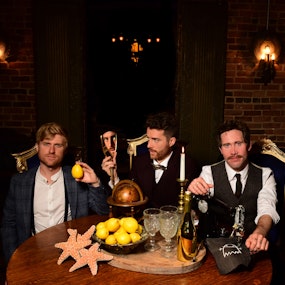
Jukebox the Ghost
Band
Jukebox the Ghost’s flamboyant and ambitious new album, “Cheers” is an arena-sized, ebullient toast to surviving and thriving in the face of hard times, conjuring up 70’s Queen and McCartney-styled song suites, without sacrificing any modern punch. As the millennial generation’s torch carrier of the piano pop legacy, Jukebox the Ghost’s latest album represents a fresh, ambitious, and imaginative take on the piano rock genre.
Piano-pop trio Jukebox the Ghost formed in college in 2006 and has steadily their devoted fanbase over almost two decades, finding their home as an internationally touring band with a massive, grassroots following outside of traditional music industry pipelines. Composed of Ben Thornewill (piano/vocals), Tommy Siegel (guitar/bass/vocals) and Jesse Kristin (drums/vocals), they have played over 1,000 shows around the world over the course of their touring career.
“Cheers”, their sixth studio effort, is the result of a three-year songwriting and recording process, culled from over 50 songs that the band brought to the table. The recording process began in Brooklyn during the beginning of the pandemic and continued throughout, with the band self-producing and quarantining together for six months to make the finished product -- by far the longest stretch of time the band has spent in the studio working on a LP to date. The effort is palpable; motifs appear and re-appear in interstitial tracks that segue into standalone pop songs, implying a larger thematic architecture that borders on a concept record without being overwrought. By almost any meas…
Read More
Featured Episodes
Here are some great episodes to start with. Or, check out episodes by genre.
























